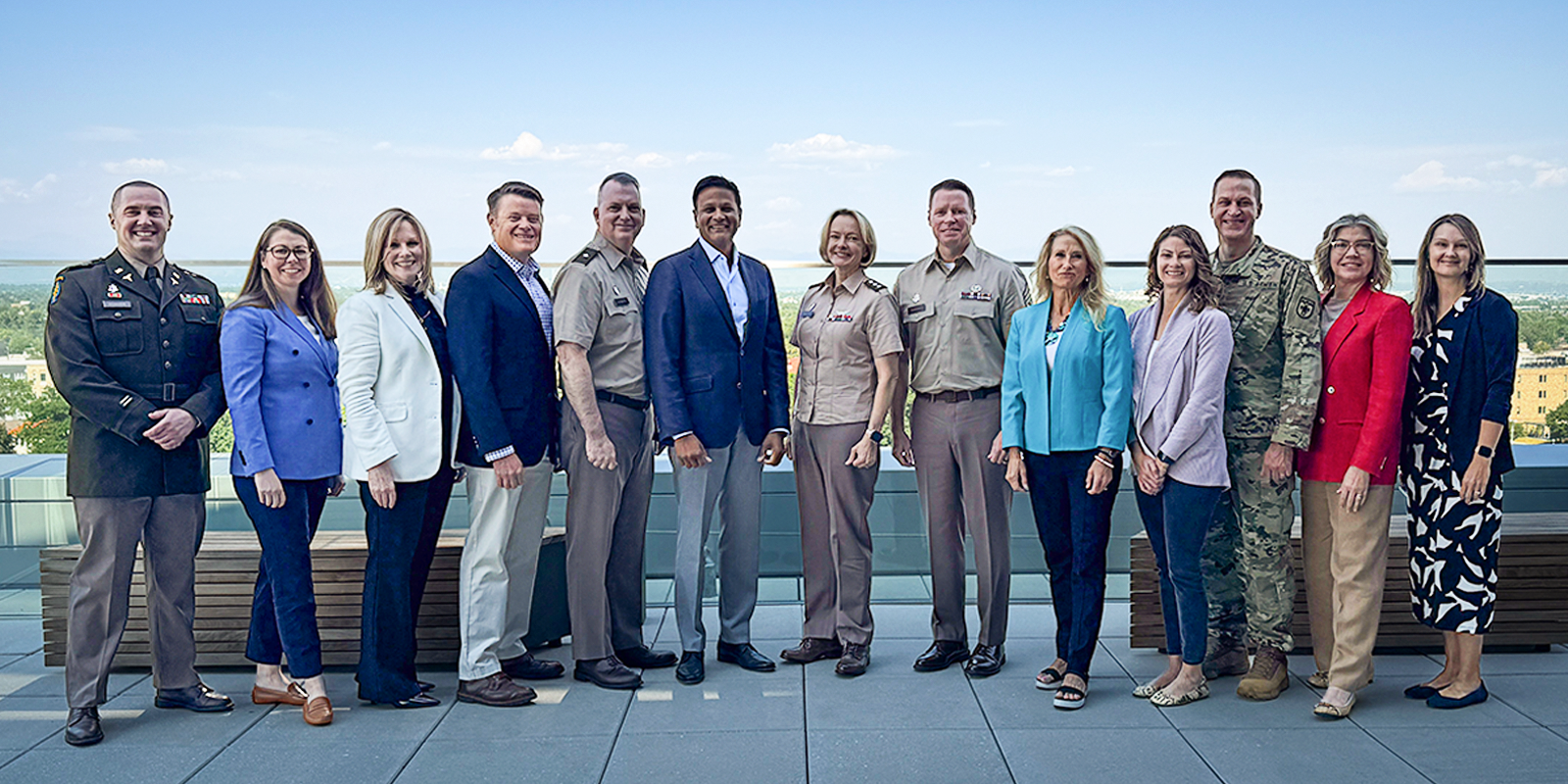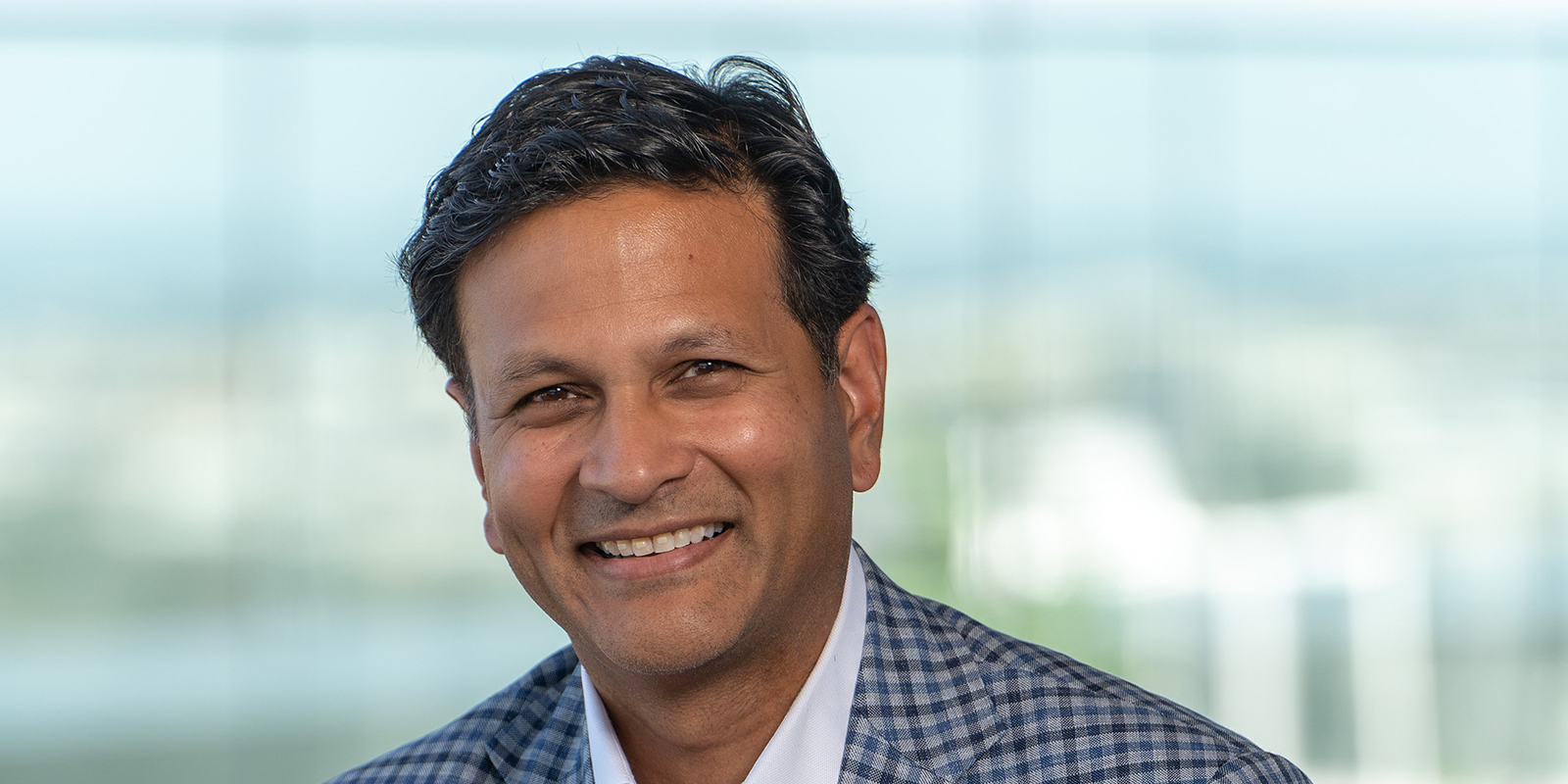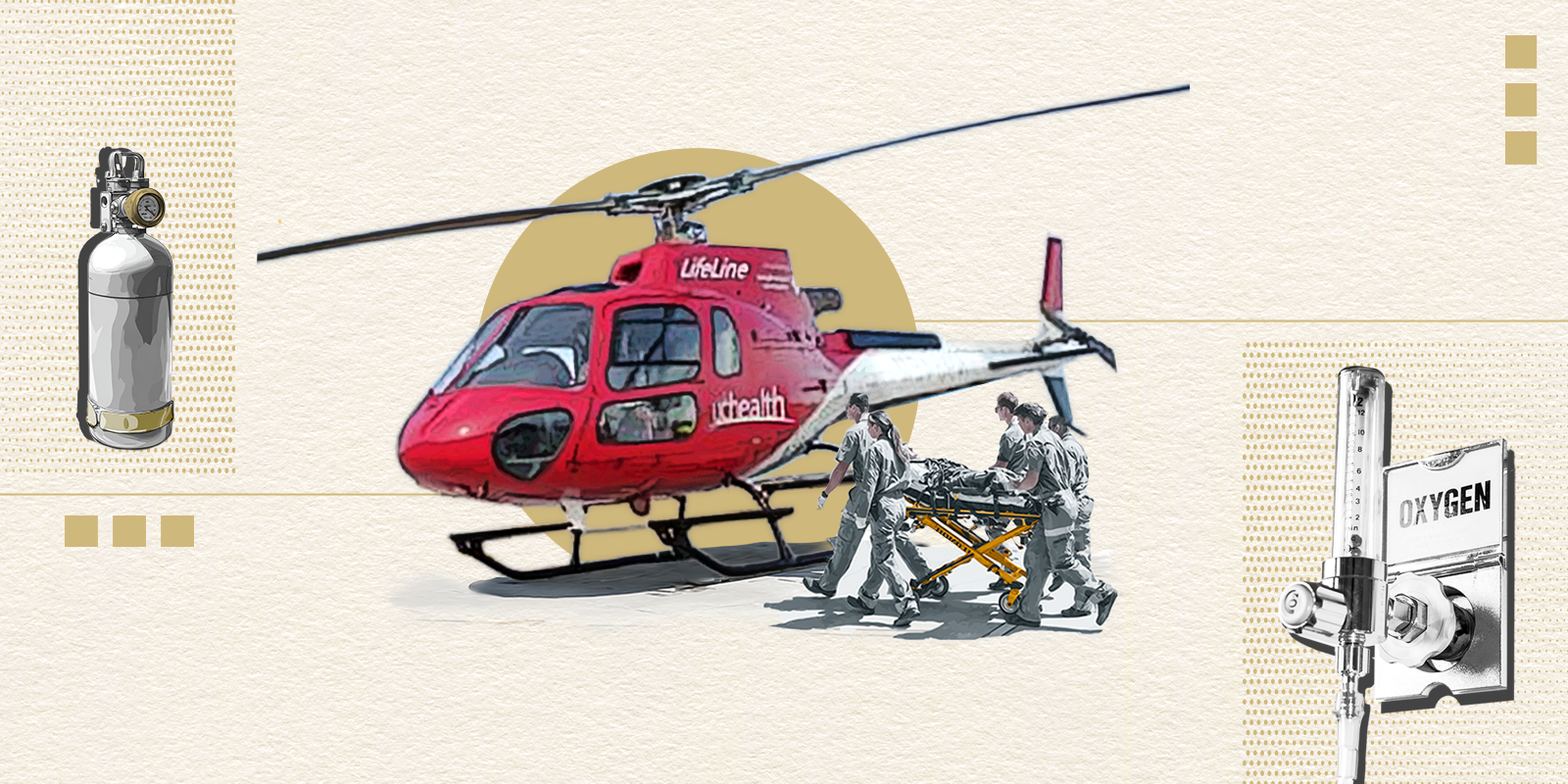Last Thursday, the University of Colorado Center for Combat Medicine and Battlefield (COMBAT) Research hosted United States Assistant Secretary of Defense for Health Affairs, Lester Martínez-López, MD, MPH, on the University of Colorado Anschutz Medical Campus.
Martínez-López’s visit was part of the COMBAT Distinguished Leader seminar series. University of Colorado President Todd Saliman, Regent Ilana Dubin Spiegel, and Anschutz Foundation President Christian P. Anschutz were in attendance for a morning leadership meeting with Martínez-López, and campus research leaders met with Martínez-López throughout the afternoon.
Vik Bebarta, MD, director of the Center for COMBAT Research and professor of emergency medicine in the CU School of Medicine, emphasized the importance of working directly with U.S. military leaders to solve the most pressing research challenges.
“The genesis of this campus is military medicine, so we want to take our advancements and turn them into better health care for all,” he said during the morning leadership meeting. “What makes COMBAT a strong leader in our field is our deep collaboration within the CU system. The investigators and research teams lean in on our mission, partnering with the Department of Defense to get research solutions out the door.”
“At the University of Colorado, we want to elevate our presence in national security, aerospace, and cybersecurity in a purposeful and focused way,” Saliman said during the leadership meeting. “We want to work together to change the world. We thank Dr. Vik Bebarta for his work translating military medicine to clinical practice. We’ve become a true leader in the field, thanks to his incredible vision.”
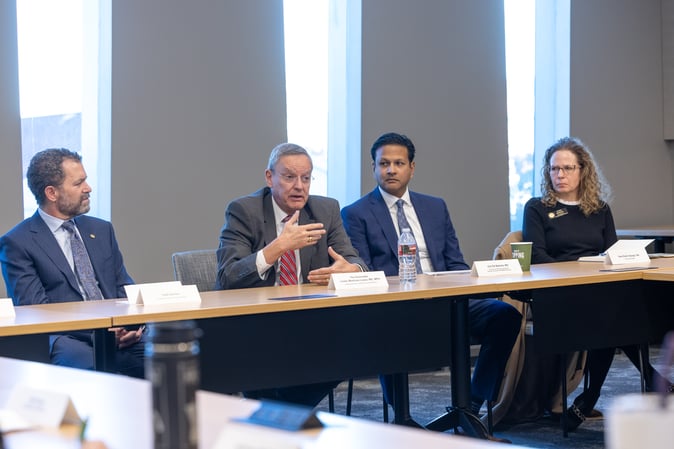
Martínez-López, MD, MPH, second from the left, addresses a question in the morning leadership meeting.
The military’s focus on mental health
During his seminar presentation, Martínez-López shared ideas for how civilian, academic, and military partners can work together. He affirmed the importance of staying focused on the care of servicemembers and their families, especially through mental health support.
He said access to mental health resources for servicemembers and their families has a direct impact on their readiness to serve.
“As collaborators, we should all be speaking the same language; putting the servicemembers’ care first,” he said. “If that’s your standard, you’re in the right place. The need for mental health care will increase in the next major military conflict. How will we meet that gap? It’s important we look at early interventions to increase resilience of our servicemembers.”
Martínez-López’s pillars for military medical health — “force readiness, medical force readiness, and care of beneficiaries” — are closely aligned with COMBAT’s research pillars, “point of injury and prolonged casualty care, critical injury and illness, and psychological health and readiness.” COMBAT has made significant efforts to improve the mental health of servicemembers, such as co-hosting the CU Military Firearm Suicide Prevention Summit, working with CU Firearm Injury Prevention Initiative faculty to lead research on suicide prevention of servicemembers, and maintaining close collaboration with Colorado military bases to understand the needs of servicemembers.
In addition to reiterating the need for mental health support in the U.S. military, Martínez-López explained why the military needs to continue collaboration with academic partners for additional medical priorities.
“We need to continue a relationship with our academic partners, who can work on research for large-scale combat operations,” he said. “Emerging chemical weapons threaten us, our standards on blood and plasma supply post-COVID-19 are increasing, and potential diseases will require quick action. We need to be ready for future crises.”
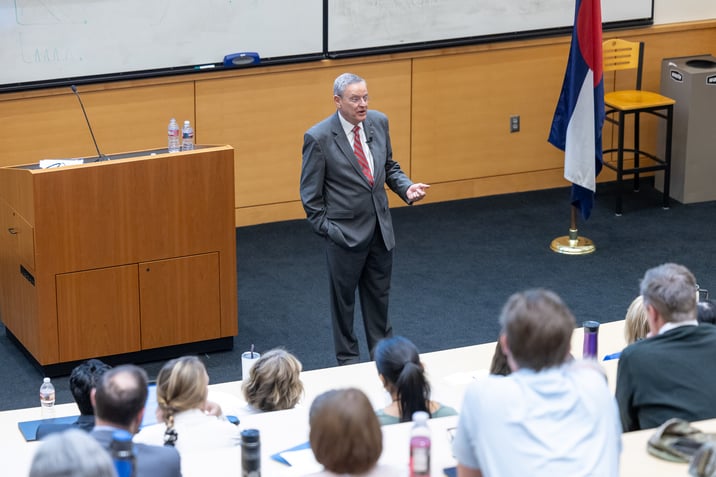
Martínez-López speaks at the Distinguished Leader Seminar.
Campuswide response to military needs
Throughout late morning and afternoon, leaders from the CU Center for Health Artificial Intelligence, CU Innovations, Cape-Colorado-Combat (C3) Global Trauma Network, investigators for clinical trials, mental health, prolonged casualty care, and Arctic medicine research presented to Martínez-López on new advancements and discoveries that have impact in military medicine.
Adit Ginde, MD, principal investigator for the Airway Trauma Lung Injury and Sepsis (ATLAS) research team and professor of emergency medicine, presented ATLAS and COMBAT’s collaborative projects and clinical trials that have rapidly translated solutions to large-scale combat operations.
ATLAS’ clinical trials funded by the Department of Defense (DoD), such as the strategy to avoid excessive oxygen (SAVE-O2) trials in trauma and burn patients and the randomized clinical trial comparing direct and video laryngoscope for tracheal intubation of critically ill adults (DEVICE), have direct solutions for military medicine. Ginde also discussed the project he will be leading to fill urgent gaps in trauma and wound care for the extended conflict in Ukraine.
Ian Stanley, PhD, psychological health lead for COMBAT and assistant research professor of emergency medicine, presented current research efforts on firearm suicide prevention and post-traumatic stress disorder funded by the DoD.
Jay Lemery, MD, professor of emergency medicine and endowed chair in climate health, presented on the CU Section of Wilderness & Environmental Medicine that includes providing medical care in such extreme environments as the Arctic, space, and the desert. Lemery explained how research on human and material performance in cold temperatures, field treatment, and protecting patients from sustaining further temperature-related injuries directly translates to servicemembers’ outcomes on the battlefield.
Nee-Kofi Mould-Millman, MD, MPH, associate professor of emergency medicine, presented his work developing and leading the C3 Global Trauma Network, a military-trauma relevant research partnership between CU and researchers in South Africa’s Western Cape. The C3 network enables DoD-relevant prolonged field care research.
Innovation for the battlefield and at home
In an afternoon meeting, Richard Zane, MD, chair of the CU Department of Emergency Medicine and chief innovation officer at UCHealth, opened a discussion on digital health. “Before we start with new advancements here on campus, we begin with a problem statement,” he said. “Whatever the problem is, it’s a problem that hospitals nationwide are having and that translates on a global scale. The best research teams will deploy innovative products by constantly iterating and adapting to current needs.”
Martínez-López’s echoed Zane’s comments. “Our culture in the military is constant troubleshooting. Innovation is how we operate and deploy quickly,” he stated.
Bebarta looks forward to a continued partnership with the U.S. military to innovate the standard of care for military and clinical settings. “We are prepared to grow from this visit and continue tackling the U.S. military’s toughest medical research challenges alongside our military and industry partners.” he said.
Martinez-Lopez's visit was organized by the CU system Office of Government Relations in partnership with the CU Center for COMBAT Research.

